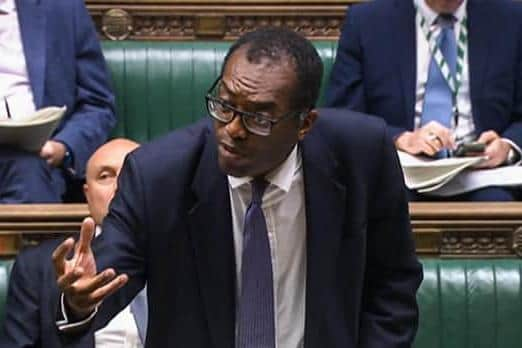Liz Truss and Kwasi Kwarteng must learn that political intransigence won’t work with the markets or voters - Justine Greening
That year, we completed the emergency budget in 50 days, with a principal objective of reassuring the markets that the new Coalition Government had a plan to get Britain’s financial house in order. In what was called a ‘credit crunch’ crisis, demonstrating we were a safer bet to lend to than others around us like Italy or Greece, perceived higher risk, was crucial.
To be able to produce an emergency budget that was seen as competent and driving confidence in the markets meant taking difficult decisions every day. I developed what I called a “District Line test”. It was my commute home every night and I’d challenge myself as to whether the other people in my carriage, knowing the state of the public finances as we did, would make the same call on the decisions I faced. Having the reality check always helped me think of the impact those decisions would have.
Advertisement
Hide AdAdvertisement
Hide AdLater that year, the first Bill I was responsible for as a new Minister was to introduce Parliamentary legislation creating the Office for Budget Responsibility (OBR). The then Chancellor, George Osborne, knew that whether or not people felt the policy direction was right or wrong, having an independent, verified set of figures would help everyone - markets, Government, Parliament and a wider public - understand the financial position of the country. Like any audit, it didn't make life easy for Ministers but it did mean difficult issues couldn’t be airbrushed or ignored. Instead, we had to be clear how we’d deal with them. Transparency drove accountability.


We knew that whatever we wanted to do politically, the markets literally had to buy into our plan. Because if the markets won’t lend and keep servicing our national debt, Governments can’t spend - whether it’s tax giveaways, healthcare, funding for schools or anything else. It's no different today.
As much as Ministers may remain convinced they have the right plan, elsewhere the markets and, judging by the opinion polls, the wider public, are not. Three weeks after the Chancellor presented his mini-budget to Parliament, it seems unrealistic to expect market sentiment to significantly change unless the plan does too. Backing off the controversial measure of taking away the 45p tax rate on the highest earners may have initially placated some Government MPs but it did not settle market uncertainties. Further piecemeal u-turns on tax policy may be welcomed by the markets but also compound a sense of there being no bolted-down Government plan. The overall consequence of that riskier and shifting set of public finances means the money markets charging the Government more to service its debt, putting further pressure on how much funding there is for frontline services.
Margaret Thatcher said ‘you can’t buck the markets’ and she was right. When economics and politics pull in different directions, in the end, economics always wins. That’s the battle playing out right now.
Advertisement
Hide AdAdvertisement
Hide AdBeing in power is about taking decisions, and those decisions have consequences for all of our lives. It’s also about succeeding in the real world as we find it, not the ideal world we’d prefer to live in. This economic crisis has become a political crisis that risks tearing the Conservative Party into pieces. But above all, it now risks becoming a bigger and bigger social crisis, as higher interest rates on mortgages and loans and a recession add to cost of living pressures already making day to day life unaffordable for millions of families.
The public has already endured a two month Conservative Party leadership battle over the summer.
Britain and our economy simply doesn’t have the time for a Conservative Parliamentary party that is continuing to debate what ‘Conservative’ means in relation to tax and growth policy decisions. As the party in Government, it must now chart a route forward. And however unpalatable the decisions are to those in power, it will have to be the politics that gives way to the economic reality Britain faces, not the other way around.
And the sooner the better. As things stand, October 31 is the day when the Chancellor’s Medium Term Fiscal Plan is due to be published, alongside OBR forecasts. It will be a crunch point for Liz Truss’s Government, her Chancellor, Kwasi Kwateng, and the wider Conservative Party. It could be the final chance to get the right economic and fiscal approach the money markets can have confidence in. Yet the question is whether the country (and our financial markets) can really wait another two weeks for a resolution. The huge uncertainty that continues to be injected into the economy is damaging consumer and business confidence at the very time we need to see it supported. Economic estimates already suggest the UK economy contracted in August. The longer the arguments go on in Government, the greater the damage will be.
Advertisement
Hide AdAdvertisement
Hide AdThere will be time in the future for a post-mortem of how and why the Conservative Party has reached this point. And of course, what direction that future party should take. But right now, most importantly, Britain needs to have its economic ship steadied by a Conservative party in Government. Businesses, livelihoods and homes depend on it. When you’re heading down a cul-de-sac, you always feel you’re going forward until you hit the brick wall at the end. Political intransigence won’t work with the markets, and it won’t work with the voters either. It’s time to get back on the right track.